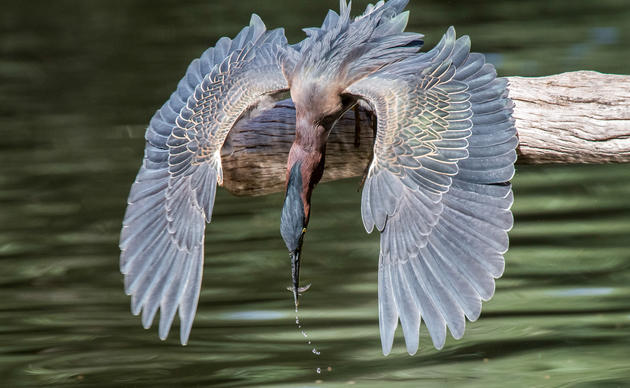With the 2023 budget signed by Governor McMaster last week, there is again significant investment in Audubon SC’s conservation priorities. While our legislative priorities are still making their way through the General Assembly, there is momentum going into the second year of this two-year session, which kicks off on January 9, 2024.
This year’s budget successes included:
-
Another $200M for the SC Office of Resilience, which Governor McMaster made clear in his signing message that he wants to see this money used to protect culturally and environmentally significant properties that are at risk from flooding, storm damage and development.
-
$25M in new one-time funding for land conservation grants through the Conservation Bank, which together with federal and pass-through dollars results in a $52M budget for the Bank.
-
Another $20M for SC Department of Natural Resources to acquire land important for wildlife.
-
$250,000 to fund the wind energy economic study through the Department of Commerce. This study was mandated with the passage of HB 4831 in 2022, which Audubon SC supported.
The Conservation Enhancement Act (H.3786/S. 280), which would reinstate a dedicated funding source for the Conservation Bank from a portion of the deed recording fee, was a top priority to start the session. Audubon SC and our partners successfully advocated for its passage in the House, but the bill did not receive a hearing by the Senate Finance Committee before the end of the session. Senator Campsen, the original sponsor of S.280, did make a late-in-the-session effort to pass a version of the Conservation Enhancement Act by having the bill language amended onto another piece of legislation that was moving through the Senate, the Working Agricultural Lands Protection Act (H.3951). However, this effort ultimately failed and the bill remains in the Senate Finance Committee going into next year. We remain hopeful that the Conservation Enhancement Act will be approved by the Senate Finance Committee and the full Senate early in the 2024 session.
The Working Agricultural Lands Protection Act (H. 3951), arose as a priority during the session when it was introduced in the House by Upstate Representative Patrick Haddon. H.3951 would create a separate fund within the Conservation Bank which will enable landowners to protect in perpetuity their agricultural working lands through a conservation easement. Many grassland-dependent species like Northern Bobwhite, Swallow-tailed Kites, Eastern Meadowlarks, and Prairie Warblers need these working lands habitats to remain undeveloped. This bill passed the House, but stalled in the Senate after it was amended to include language from the Conservation Enhancement Act. Audubon SC has prioritized Senate passage of the original Working Agricultural Lands Protection Act for 2024.
Several bills and legislative initiatives that could lead to more clean energy are moving as well. For example, H. 3948, Solar Property Tax Exemption, passed the House and is pending in the Senate for next year. This bill would allow for a property tax exemption for solar installed on or for commercial business use, expanding upon the current exemption for residential properties. If this passes, it will increase accessibility to solar for businesses and more clean energy, like solar, is good for birds, as it is one critical way to reduce emissions and mitigate the impacts of climate change on birds and their habitat .
Read more here for a summary of other legislative opportunities Audubon SC and the conservation community is participating in to help secure a clean energy future for SC, including the ongoing legislative study committee on reforming the electricity market; Speaker Murrell Smith’s ad hoc committee on economic development and utility modernization; and S.779, the Energy Independence and Risk Reduction Act, filed by Senator Scott Talley.
Over the summer, Audubon SC is looking ahead to how we can protect birds and the places they need through advancement of these priorities, continued investments in conservation agencies, and implementation of the SC Office of Resilience’s statewide resilience plan to be released week.
For more information or to get involved, please sign up here.




